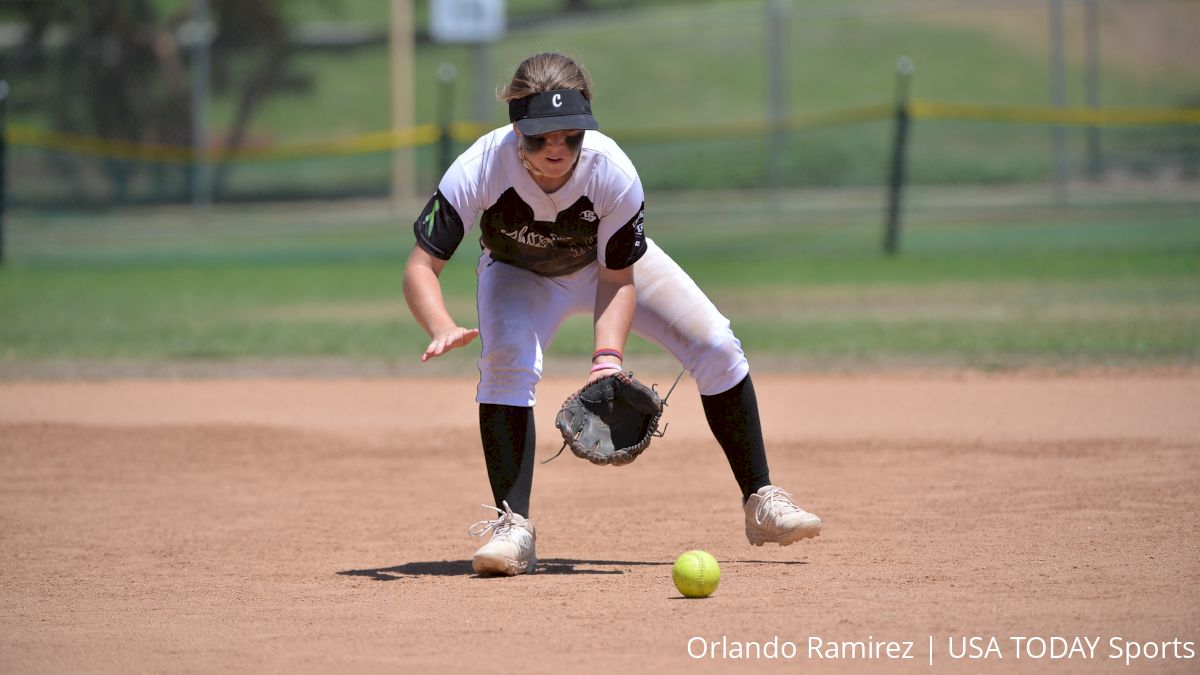The Ugly Side Of Early Specialization
The Ugly Side Of Early Specialization
Sport specialization is cited as a large contributor to sport attrition. Up to 70 percent of children drop out of organized sports by age 13.

By Kaila Holtz @kailaholtz
Through high school I played both volleyball and basketball in the fall and winter. Similar to some of my male counterparts, I didn’t play competitive travel ball at the exclusion of other sports until after the ninth grade but instead started sampling different sports at a young age.
As a former UMASS softball player and coach, I've noticed a trend for early sport specialization that could lead us down an ugly path.
Up to 70 percent of children stop playing organized sports by age 13. Sport specialization is cited as a large contributor to this attrition and is defined as playing a single sport at the exclusion of others. Imagine playing for a travel team coach who required players to choose between soccer or volleyball and softball in the offseason.
In speaking to parents and amateur coaches as a physician, there’s a fear that not specializing early will result in a lack of skill development.
Early sport specialization means this choice occurs before puberty (average age of menarche in the United States is 12.5 years). Softball has a high risk of early sport specialization, and with the rise of 10U and 12U travel teams, it’s easy to see why.
A recent study looking at the risk of overuse injury classified youth athletes into low, medium, and highly specialized using the following criteria:
- Can you pick a main sport?
- Did you quit other sports to focus on a main sport?
- Do you train (practice/compete) more than eight months of the year?
If athletes answered “yes” to one or fewer questions, they had a low degree of specialization. If they answered yes to two of the above questions, they were moderately specialized. Three times, highly specialized.
Emotional Burnout
Early sport specialization was once thought to be good for athlete development. Since Malcolm Gladwell popularized Anders Ericsson’s theory of deliberate practice in "Outliers" (2008) we’ve embraced almost an obsessive-compulsive softball culture with the goal of achieving 10,000 hours. More is supposedly better. But slowly and steadily the evidence is mounting that spending more time at a young age in the desired sport probably won’t make the athletes better and may be harmful. The higher the degree of specialization the more likely athletes are to suffer overuse injuries. Research has also shown early sport specialization to be associated with emotional burnout.
There are several sports that do require early specialization to reach peak performance. Figure skating, gymnastics, and diving are all sports in which it is beneficial to specialize early because peak performance occurs before athletes are physically mature. Softball, in contrast, is a late specialization sport. In softball, achieving peak performance requires a baseline level of athleticism, hand-eye coordination, and emotional and mental maturity for the successful execution of complex motor skills like hitting and pitching.
Eliminating participation in sports that help develop one’s fundamental movement skills in middle childhood (ages 6 to 12 years old) would result in athletes not able to reach their full potential. This is why Washington Huskies head coach Heather Tarr looks for "unicorns," players who sampled several sports while they were younger (i.e. multi-sport athletes). In college, these players flourish with good coaching on top of a solid athletic base.
Risks associated with early sport specialization:
- Overuse injury
- Emotional burnout
- Quitting sport before peak performance can occur
Development vs. Achievement
In late childhood and early adolescence, there is a tension between sport for personal development and sport for personal achievement. Development takes time and practice and the whole point is to learn from little failures along the way.
With early verbal commitments for NCAA scholarships (as young as the sixth grade) and 8U/10U/12U National Championships, softball has been pushed away from development and toward achievement in late childhood/early adolescence. There is no time for the teachings of little failures. But slowly sports stakeholders are pushing back.
NCAA softball recruiting rules have recently changed. Coach education in Long Term Athlete Development (LTAD) principles is required by many sports organizations. Parents are asking thoughtful questions. How have for-profit organizations running showcase tournaments year-round impacted our game?
There is good news for young athletes already in hypercompetitive environments who are at high risk for injury and burnout. Deliberate play and creating a fun, positive environment has been shown to counteract the negative effects of stress and overtraining in younger athletes. It’s counterintuitive because being serious has long been equated with competitiveness and fun with “goofing off.”
The Florida State softball program built a little fun into their daily schedule and it paid off with a national championship. UCLA coach Kelly Inouye-Perez had a whiffle ball on her shoe during games to remind herself and the team that taking a child-like approach to the game was key to being successful.
Ways to counteract the potential adverse effects of specialization:
- Monitor workloads of stressful, competitive activities. This includes school.
- Embrace fun and deliberate play in child-driven rather than adult-driven games.
- At least one day off per week for both mental and physical rest.
- Have a declared “offseason” (a 2-3 month break from games) where other sports can be pursued.
Key Points
The risk of early specialization and its consequences are high in softball. Early specialization (before 13 years old) is associated with overuse injury and emotional burnout. Paradoxically it may limit athletic potential rather than enhance it.
Emerging evidence suggests we re-examine the risks vs. benefits of year-round travel ball schedules for athletes under 14 years old. Coaches, parents, administrators and sport federations should consider a scheduled offseason, in-season rest days, and play-based activities in practice.
Celebrating fun and personal development rather than achievement is critical for keeping kids in the game of softball through adolescence and into adulthood.